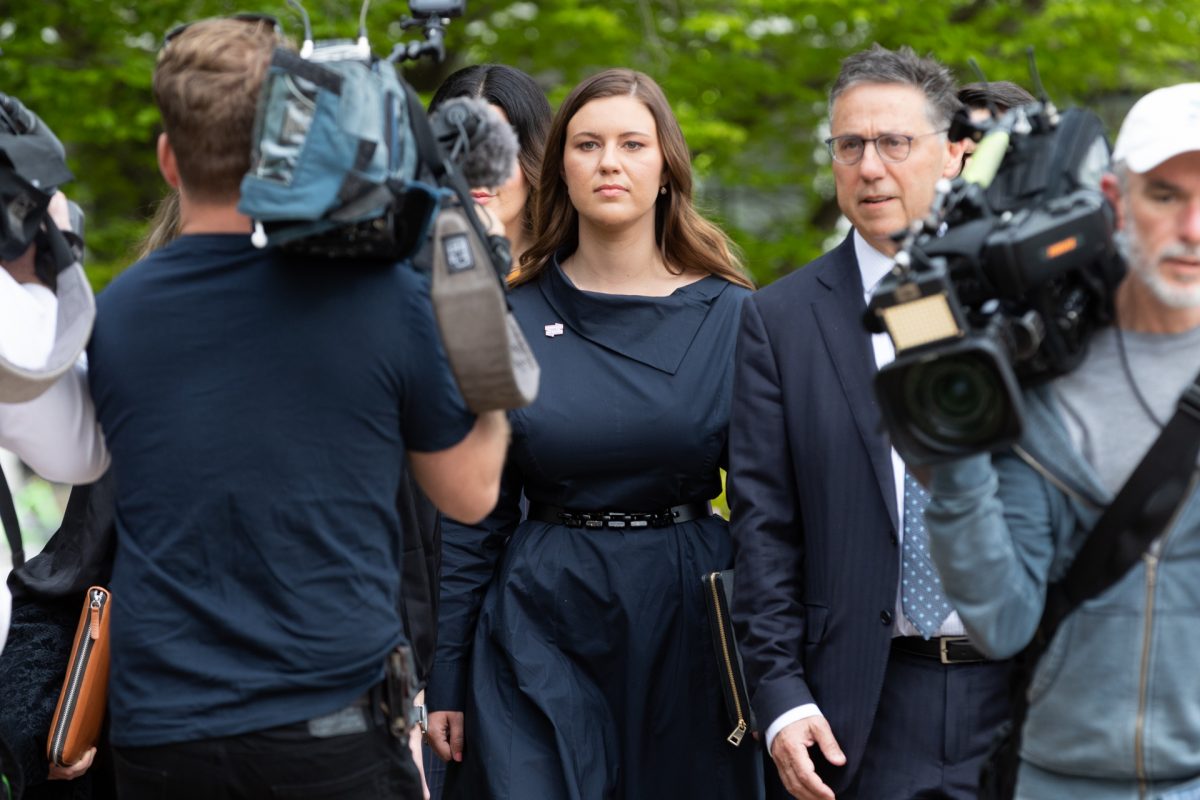
Brittany Higgins arriving for the first day of the ACT Supreme Court trial on 4 October. Photo: Michelle Kroll.
CONTENT WARNING: This article discusses an alleged sexual assault.
The prosecution has given its closing statement to the jury, and the defence will continue tomorrow as the trial of Bruce Lehrmann, who is alleged to have raped Brittany Higgins, draws to a close in the ACT Supreme Court.
Director of Public Prosecutions Shane Drumgold urged the jury to consider the evidence from 29 witnesses and numerous court exhibits without being distracted by “side issues or red herrings”.
“This case is not about political movements, parties or workplace cultures,” Mr Drumgold said.
“It’s not about whether Parliament House responses to any issues were appropriate … it’s certainly not about the experiences of other women in Parliament House or the Me Too movement.
“This is about what happened on a couch in a room on Saturday, 23rd of March 2019.”
Mr Drumgold asked the jury to consider the position this case could have been in if the election hadn’t been called and if Ms Higgins didn’t have to go to Perth for work, which caused her to withdraw her original complaint to police.
“[We] could have been sitting here in 2019,” he said.
“How can something that occurred two years later, such as a media interview or a book deal, make something that happened unhappen?”
He also pointed to the political context of 2019 versus 2021, when Ms Higgins restarted her case with police.
“[She was] a young lady in the middle of strong political forces,” Mr Drumgold suggested.
“We say she was right to the scared, right to be cautious [in 2019] … about handing her life over to police.”
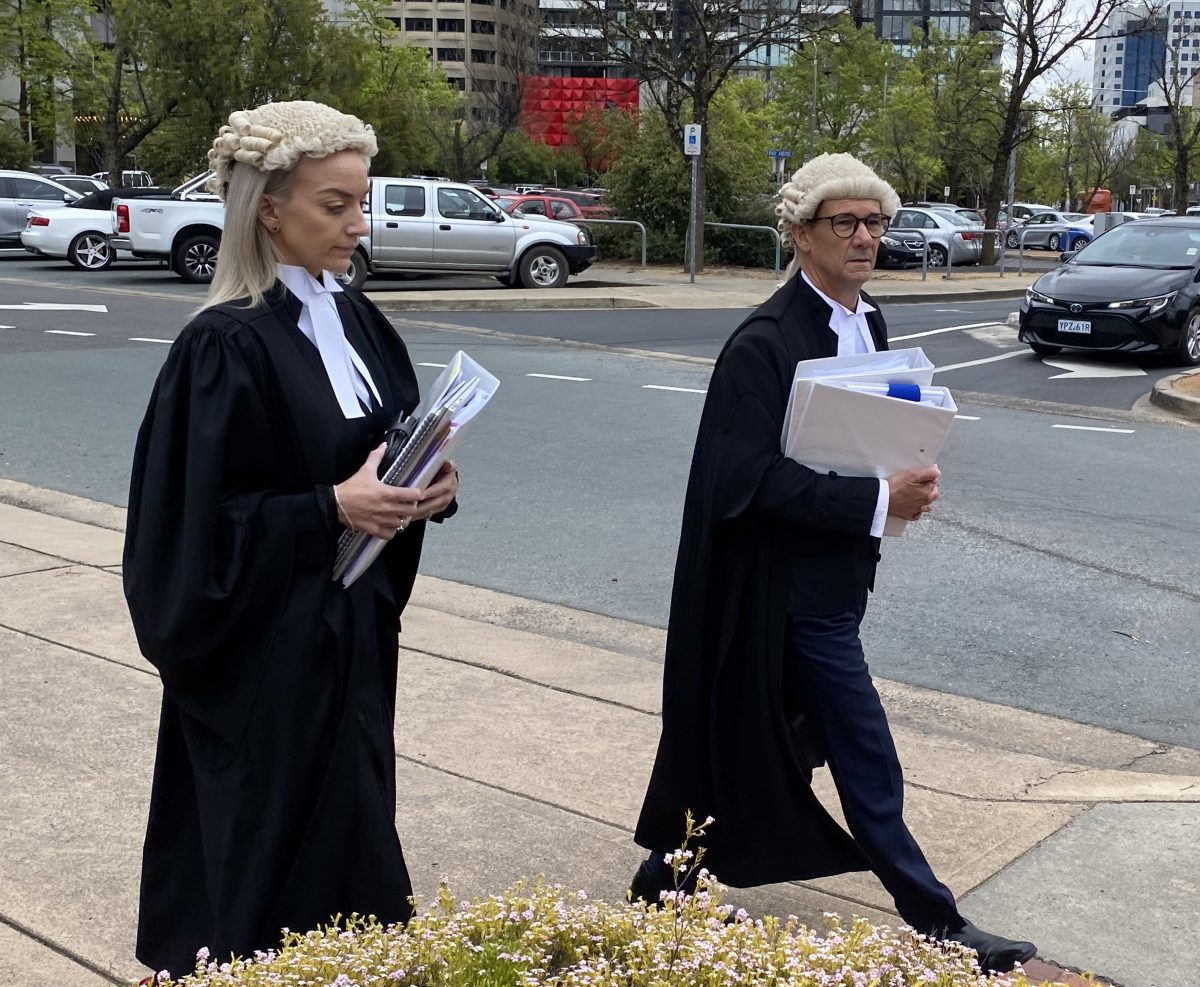
DPP Shane Drumgold (right) described Ms Higgins as a “young lady in the middle of strong political forces” in his closing statement. Photo: Claire Fenwicke.
Mr Drumgold told the jury they had five questions to consider when deliberating their verdict: if the accused Bruce Lehrmann was attracted to Ms Higgins, why he entered Parliament House the night of 23 March 2019, if there was sexual intercourse, if there was consent, and if Mr Lehrmann was “reckless” about whether Ms Higgins gave her consent or not.
For the first question, Mr Drumgold said the answer was yes, as he stated Mr Lehrmann had asked a friend to invite Ms Higgins out for a drink, and the testimony from Ms Higgins showed he had previously tried to kiss her.
As for the reasons Mr Lehrmann gave for returning to Parliament House at 1:40 am after a night of drinking, Mr Drumgold submitted three were “not true” while the fourth could have been “part of the reason” he was there.
Various pieces of evidence showed Mr Lehrmann claimed he had returned to Parliament House to pick up some documents, grab his keys and pass which he had left on his desk, to make some notes on a Question Time file following discussions with various people that night, and to drink whiskey.
Mr Drumgold dismissed all of these suggestions but said it could have been possible returning to the office to drink was part of the reason Mr Lehrmann returned.
“We say the real motive … [was] signing in a very drunk complainant in the middle of the night was to get her alone,” Mr Drumgold said.
Whether there was sex at all, the prosecutor said this was the central question where the evidence “quite clearly” came from Ms Higgins.
He described Ms Higgins as an “inherently credible” witness who gave a “vivid and compelling” description of what she could remember from that night.
Mr Drumgold also rejected notions Ms Higgins would have fabricated the alleged assault to save her job.
“She was faced with a fork in the road of either having a job, a dream job, or the path of making a complaint,” he said.
Overall, Mr Drumgold said the jury needed to “wade through” all of the “debris” to find the essence of the case.
“I submit [that is] whether Ms Higgins made up what happened to her on the couch with Mr Lehrmann,” he said.
“If she did, it was elaborate … if it was fabricated, she’s also quite an actor.”
He concluded if the jury could be satisfied beyond reasonable doubt she didn’t make up or dream what she claimed, then “you must return a verdict of guilty”.
Mr Lehrmann’s barrister Steven Whybrow began giving his closing statements, reminding the jury the onus of proof was on the prosecution, not the defence.
“We know already there’s been a fair bit of trial by media … we’re here for a fair process with a presumption of innocence,” he said.
He questioned where the evidence was that Ms Higgins had a “right to be scared”, pointing to testimony from both Michaelia Cash and Linda Reynolds that her job would not have been at risk.
“Have you heard any evidence there were political forces at play other than from Ms Higgins?” he asked.
“A close look at her evidence makes this case totally untenable, in my submission.”
Mr Whybrow addressed Mr Lehrmann’s movements on the night, referring to CCTV from the security checkpoint, which he said showed Mr Lehrmann only put his phone through the scanner, which meant he didn’t have his keys in his possession.
He also said it wasn’t unusual for Mr Lehrmann to have left the building in a hurry, as he had ordered an Uber.
“Is the only rational reference here that he’s fleeing the scene of a crime?” Mr Whybrow asked.
“How much weight can you put on … these minute, minuscule criticisms of Mr Lehrmann?”
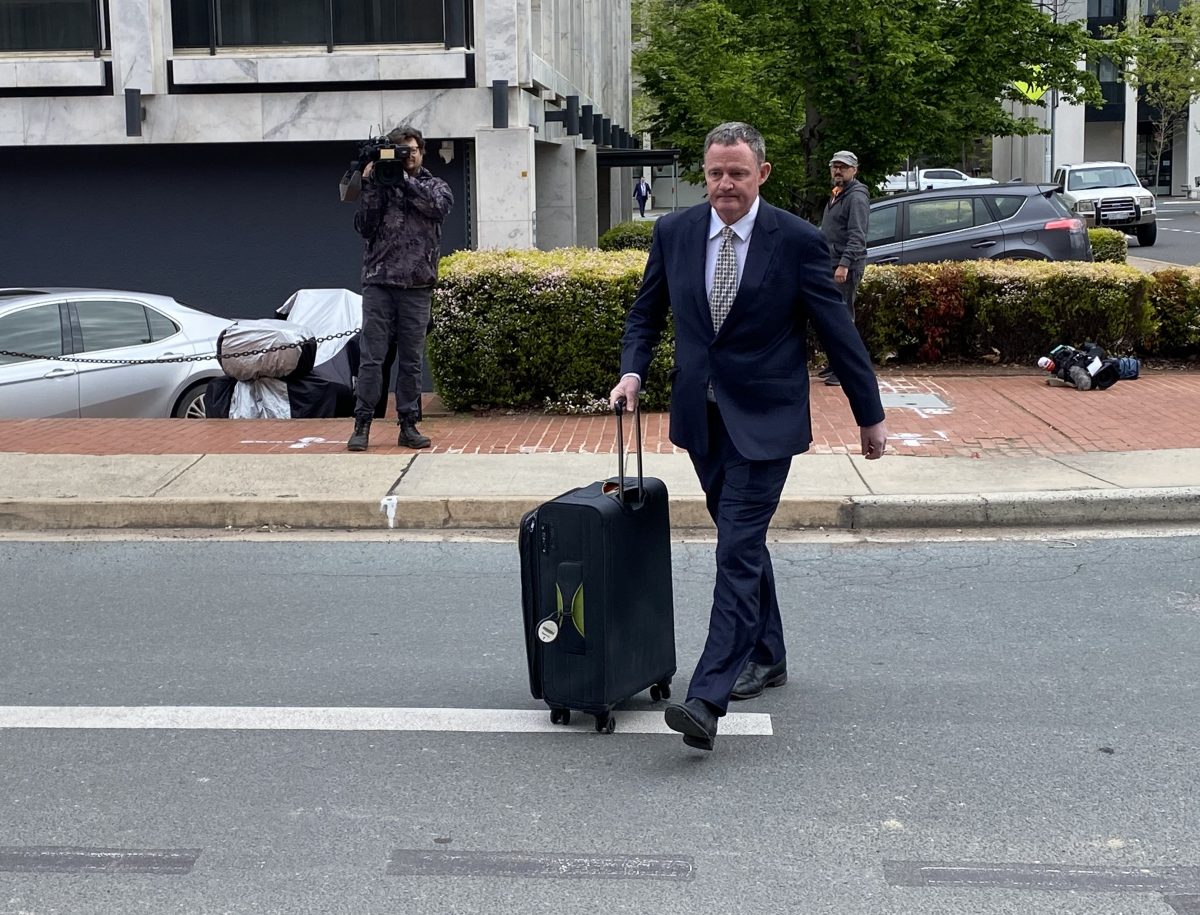
Defence barrister Steven Whybrow suggested Ms Higgins was “unreliable” as he began his closing statements. Photo: Claire Fenwicke.
He said the entire case turned on whether Ms Higgins was telling the truth and how truthful she had been throughout the process.
“You might not be able to count on one hand the number [of statements] that were genuine, reliable, truthful,” Mr Whybrow submitted.
He said while the onus was not on the defence to prove innocence, he suggested she may have made up the alleged incident to save her job as a “possible explanation”.
“If you reject that, the prosecution’s case isn’t any more advanced … you’re still at step one,” Mr Whybrow said.
He also pointed to Ms Higgins’ state of intoxication that night.
“She doesn’t know what happened … you cannot be satisfied, I submit to you, that she knows what happened,” Mr Whybrow said.
The defence barrister said while there was “no template” on how someone would react following an assault, he argued Ms Higgins had used “the effects of trauma” as an excuse each time she was “caught out”.
“[It’s] a talking point she’s spouting every time things get tough,” he claimed.
“It’s almost as if she doesn’t get that people keep receipts.”
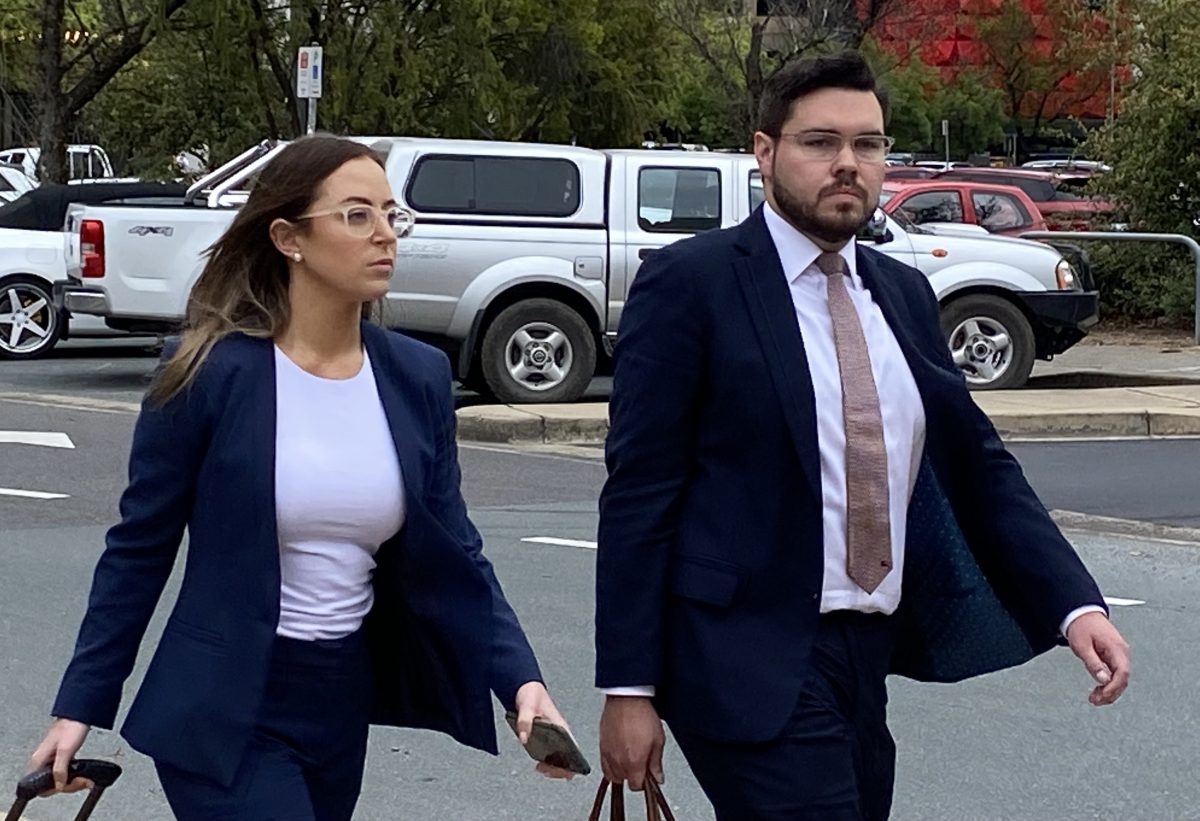
Defendant Bruce Lehrmann (right) arriving at ACT Supreme Court on Tuesday (18 October). Photo: Claire Fenwicke.
He claimed Ms Higgins was someone who was “unreliable” and said things “to suit her”.
“Maybe she didn’t remember, maybe she thought nobody would keep the receipts, thought she could say whatever and get away with it,” Mr Whybrow said.
“You have to go and pull every tooth before you get to the truth.”
Mr Whybrow will continue his closing statements to the jury tomorrow morning (Wednesday, 19 October).
Mr Lehrmann has pleaded not guilty to a charge of sexual intercourse without consent.












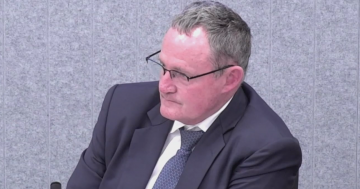
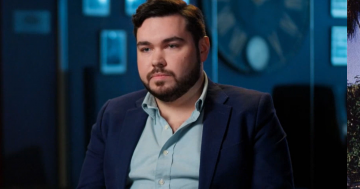
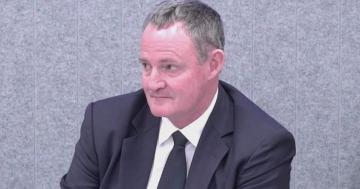
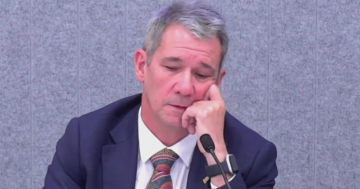
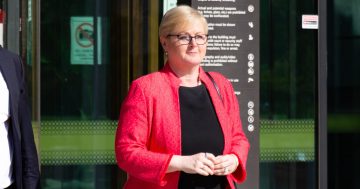
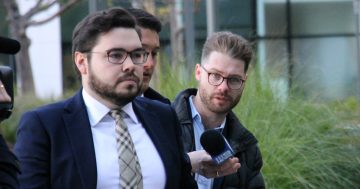


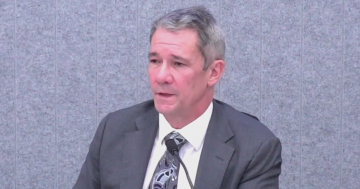

As the Independent candidate for Canberra, I want to clarify that not all Independents are funded by… View